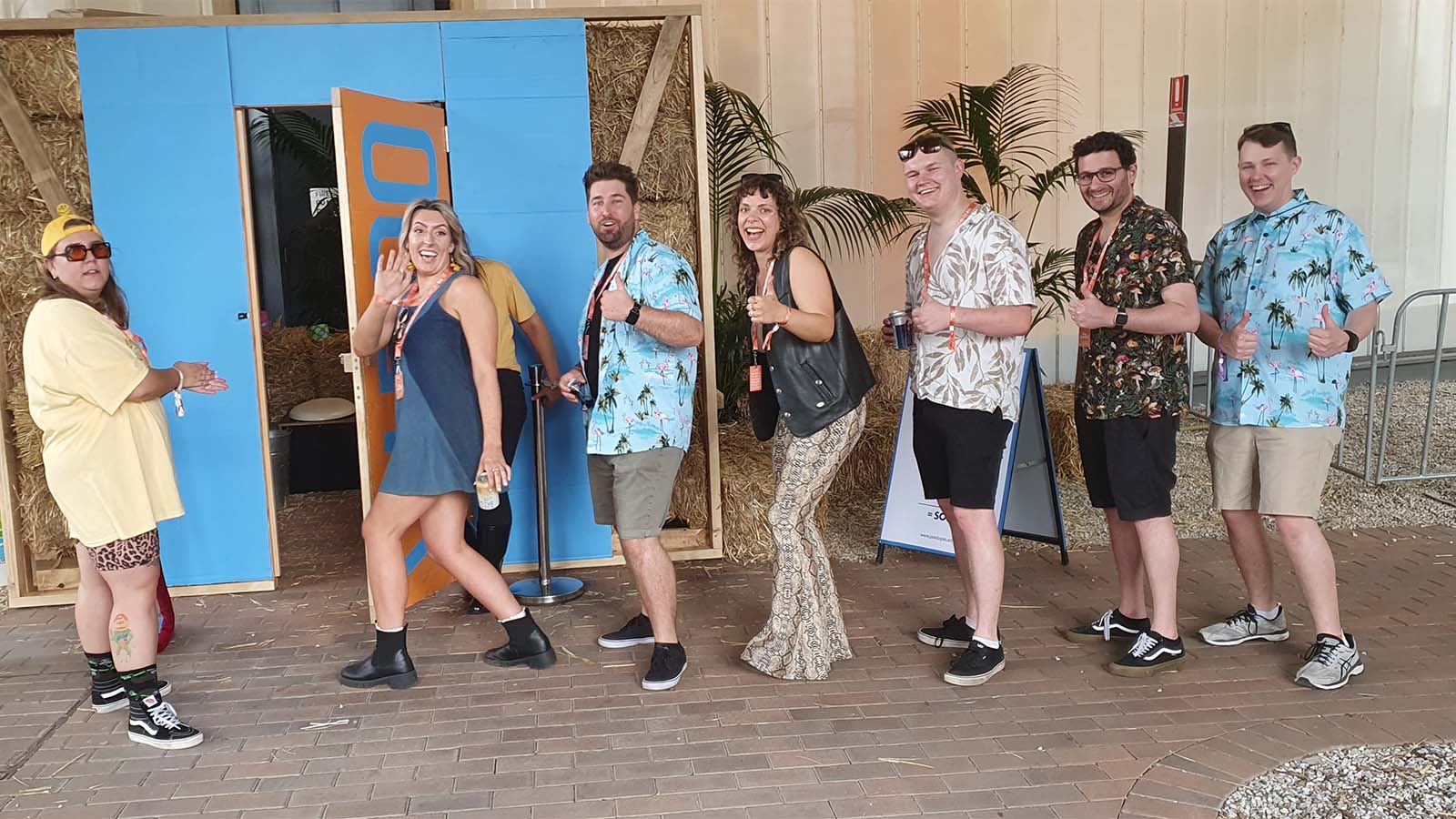Pootopia: the science, art and economics of human manure
Is 'humanure’ the future of fertiliser?
November 14, 2025
Most of us don’t think twice about the fact that our favourite fruit and veggies are grown with the help of animal manure. But how would you feel about growing food with your own poo?
That is the question behind Dr Lucas Ihlein’s and Dr Kim Williams’ latest art installation which was launched at Yours and Owls Festival over the weekend, to promote the Global Challenges project Pootopia.
The project brings together artists, engineers, economists and scientists to change public perceptions around human waste from a problem to a resource, by exploring the benefits of using human excrement as fertiliser for sustainable food growth through art.
“In my field of socially engaged art, the key goal of our practice is to create situations in which people can connect with each other in unusual ways. There is an underlying theme of trying to solve an environmental problem,” says project leader Dr Ihlein.
“Underlying that environmental problem is a social problem: how do we organise infrastructure and logistics of the way people live and what kind of appetite do people have to make changes to their daily habits – in this case, going to the toilet?”
Pootopia was one of many live art installations at the festival and provided an alternative toilet option to the standard portaloos, with limited spaces inspiring the nickname ‘the VIPoo experience.’
Patrons were directed through by concierges, a process that Dr Ihlein describes as “fun, silly, ritualistic and performative” and rewarded for their contribution with an invented currency called ‘ShitCoin’ which could be exchanged for fresh fruit, a Pootopia souvenir or a discount on Yours and Owls merchandise.

Festival goers lining up to use the VIPoo experience. Photo: Lucas Ihlein
"The whole idea of that is to communicate the underlying manifesto of the project, which is a shift from framing human excrement as waste to framing it as a resource,” he says.
“This isn't a waste product that we need to spend money on getting rid of, this is a resource that we should be paying money to receive so that it can be transformed into this valuable thing that we need for human survival, which is soil.”
The humanure will then be composted over the following year, turned into soil, bottled up, and sold back as artwork at the next festival.
“When you compost human manure correctly, it reaches a temperature around 60 degrees and that temperature means that the pathogens in the human body are broken down into a safe component,” Dr Ihlein explains.
Pootopia is a joint venture between Dr Ihlein and Dr Williams, and fellow UOW researchers, including pathogen scientist Dr Bethany Hoye, engineer Professor Faisal Hai and economists Associate Professor Amir Arjomandi and Associate Professor Alfredo Paloyo. They are joined by art students Cameron Barnes and Kaz Zouain, and performance artist and UOW graduate Amber Jones.
“Kim and I are particularly interested in the social aspect as artists, the economists are interested in what kind of incentives could be useful for making transformation happen, and those things are tied up with social acceptance issues,” says Dr Ihlein.
“[Engineer] Faisal is really interested in the logistics of wastewater treatment at a large scale, then [pathogen scientist] Bethany knows all about the pathology of bacteria, things that make animals sick, and has experience in fieldwork and lab work that brings a really critical lense to the project.”
Pootopia is funded by the 2023 Global Challenges Program, plus support from Yours and Owls Festival.
Follow the journey via the Pootopia Instagram.